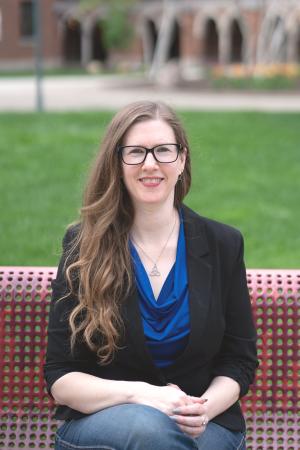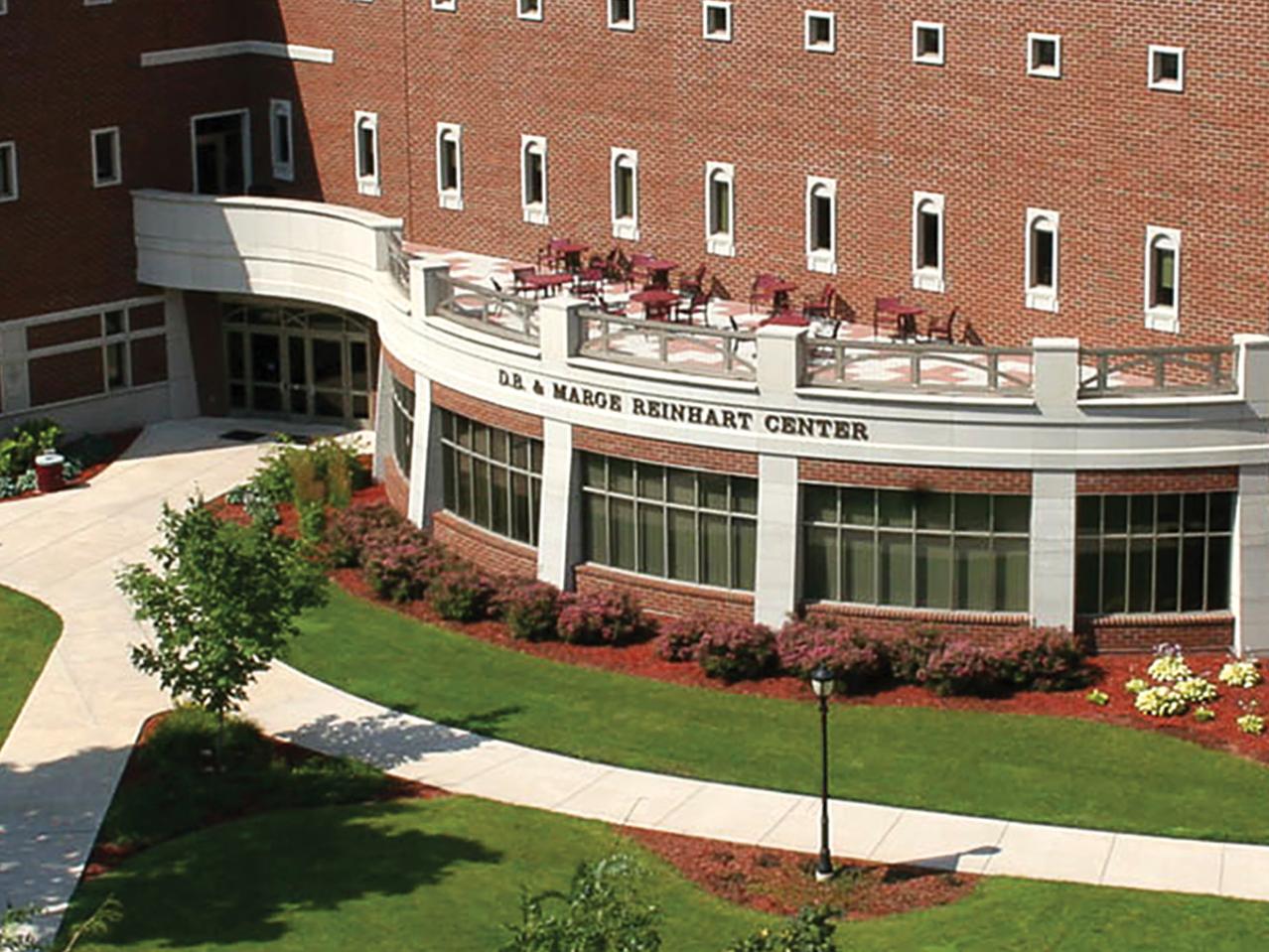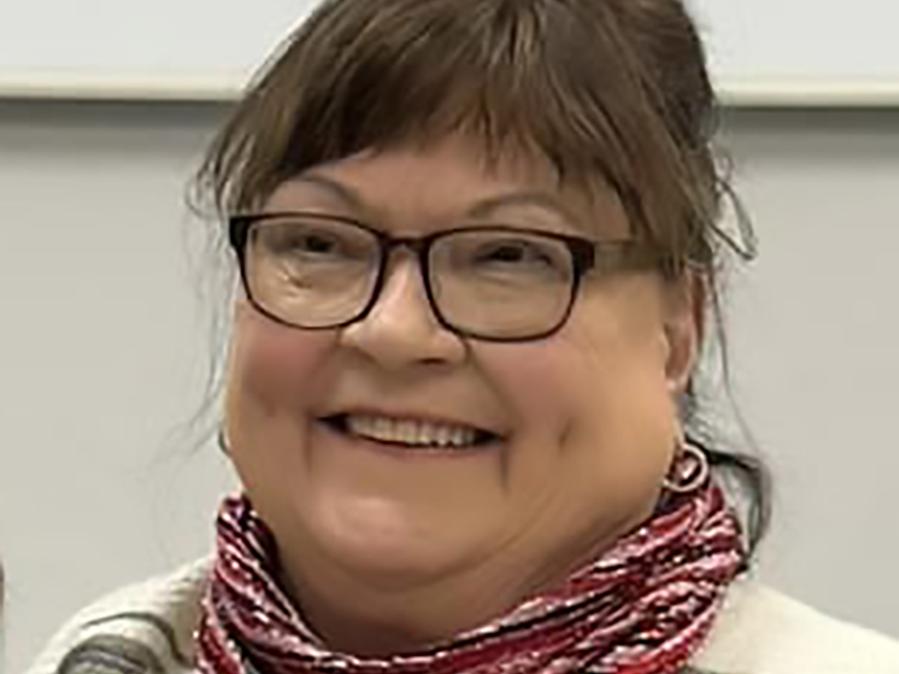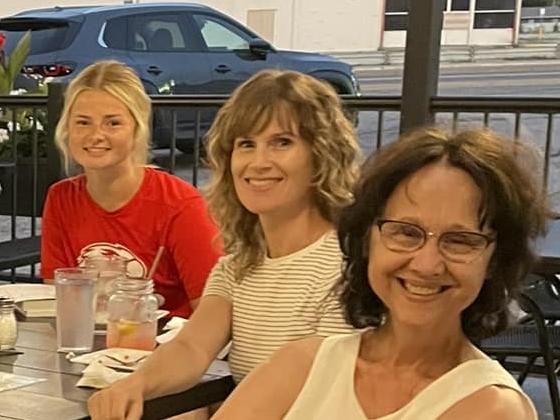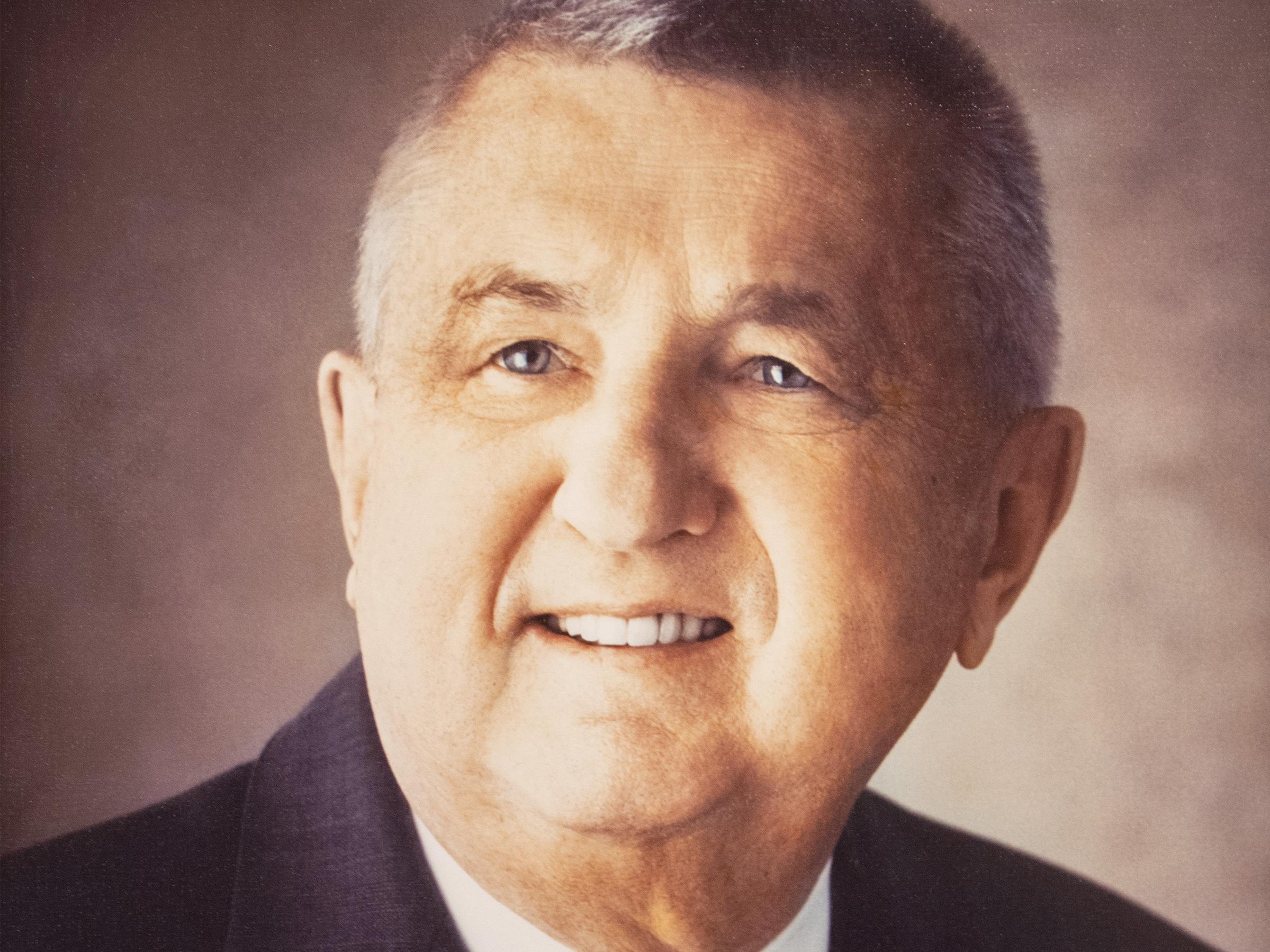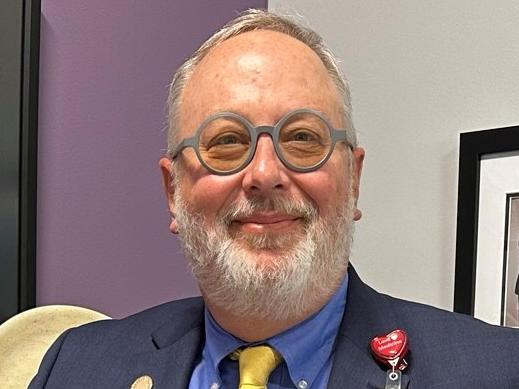For Shannon McManimon, program director of Viterbo’s Ethical Leadership Doctorate in Education program, the concepts of transformation and education are inextricably linked.
“When I think about ‘transform’ in the sense of what education should be doing, to transform has multiple purposes. One of the purposes of education should be to transform students. So that means in educational endeavor, you are changed somehow, hopefully for the positive…that people will grow; come to new understandings; come to new ideas; and are able to integrate their lived experiences, theory, and discussion together.” Her hope is that transformation on that personal level is what education will do.
Part of McManimon’s vision for the EdD in ethical leadership program recognizes that there are challenges in the world and that leadership is important to help move through those challenges. She said her hope is that the program would help to teach students how to work toward the common good and how to be more fully human.
“To transform in leadership, then, is to help our systems and the people within those systems make those positive changes,” she said. “For me, transforming always has to do with increasing human and economic rights and countering oppression. It has to be about social justice.”
McManimon is passionate about social justice and the transformation of students. She shared that her parents were always concerned about transforming the world into a better place. Even at a young age, McManimon would help her mother coordinate food pantry donations. Her parents' role modeling, working in charitable organizations, choosing to live in racially and economically diverse communities, and her love of reading gave her opportunities to see others without the same privileges that she grew up with. McManimon’s love of reading was influential in the development of her passion for social justice. At an early age, she began asking the question, “How do we live together and share what we have?”
“I sometimes say that Bell Hooks was the reason I went to graduate school,” she said. “Hooks’s Teaching to Transgress really helped me to think differently about education. It is a story of how education can be about transformation. Hooks explained that we need to nurture and care for the souls of our students; that if teachers aren’t working on self-actualization, then how can we expect students to be doing that; and that the classroom is a location of possibility in which we labor for freedom together. The classroom is a space where we engage in that work of transformation, and we engage in caring for each other as humans.”
Hooks’ book, McManimon added, “felt like truth” to her.
“Also knowing that schools are not that place for most people,” she added, “was what propelled me to think about ‘How can we make more schools the kind of places that (Hooks) was writing about?’”
McManimon explained that Hooks and other authors and social activists made her think about the challenge of blending academic concepts and personal experience in the context of how we can be our best selves.
From her own experiences, after growing up in Rochester, Minn., and earning her undergraduate degrees in history and sociology, McManimon spent time working in Catholic worker houses and worked in a variety of peace and social justice nonprofit organizations. One of these organizations was at the American Friends Service Committee (AFSC) international headquarters in Philadelphia, where she worked with peace education programs.
“One of the earliest experiences that I had there I was probably no more than 24, and they were bringing together people from youth programs around the world,” McManimon said. “I was tasked with facilitating. Within the first day, there was a major blow-up between the U.S. youth and the international youth. It had to do with issues of privilege and positionality. It was a pretty early experience of me having to navigate a conflict between different groups of youth who were coming from very different places in the world. So, I think it’s experiences like that, and I did get wonderful mentorship from two of the much older adults who were at the AFSC who helped me to figure out how to navigate.”
McManimon eventually returned to school to study education and to think more deeply about how to navigate multi-racial issues in schools. She earned a PhD in curriculum and instruction with a sub-area in culture and teaching from the University of Minnesota in the Twin Cities. She found that she loved university teaching and research focused heavily on underrepresented youth.
Later, McManimon took a position teaching educational foundations and became the program coordinator of the social justice educational studies master’s program at the State University of New York at New Paltz. After seven years there, McManimon returned to the Midwest because she said that being the program director of a doctorate program in ethical leadership that was in its infancy was an “exciting opportunity.”
Returning to her thoughts on transformation, McManimon added, “I don’t know if we can have the societal change without the personal change and transformation. They go hand in hand. If I’m not being self-aware, if I’m not thinking about how I want to be in the world, if I’m saying that I’m interested in things like people having access to health care and I want people to have access to a good education and I want people to act more justly towards each other, but I’m not doing that in my day to day, well…those things need to match.
“So, I think that people who are in positions of leadership and in positions of trying to enact change also need to be doing that personal work at the same time,” she continued. “And then those big systems that seem hard to move are made up of those people and their decisions. The systems are all interconnected. And as individuals we have only so much in our sphere of influence.”
For instance, when she has done work with teachers, looking at their sphere of influence, they might see that the curriculum in their school is not reflective of the students who are in their classroom. She explained that one teacher might not be able to change an entire state curriculum system but that one teacher can definitely change the curriculum in their own classroom.
“So, if all of us are working on transformation in those little areas that we are enmeshed in…those little things all add up,” she said.
An avid gardener, McManimon said she has a place outside where she removed invasive species and planted native grasses and pollinator plants, and this small act has led to a wider ripple effect in her community. She explained that, of course, this made a difference in that immediate piece of land, but that land is also part of a larger ecosystem that has now become inhabited by a larger number of bees and butterflies.
Monarch butterflies love the native blazing star (Liatris Spicata) flowers she planted. “There are times when 20 monarch butterflies are on one plant,” McManimon said. “It is so fun to watch the neighborhood kids walk by and to see their faces light up to see the butterflies.”
In addition, a nearby church asked if they could paint a mural of butterflies on McManimon’s fence and people walking by will take pictures of the mural. “Transformation doesn’t necessarily need to be big.” she continued, “It can be like someone stopping because there is something beautiful that they didn’t expect to see.”
Like that transformed piece of land, McManimon also sees possibility and potential with the EdD in ethical leadership program. Her vision is incorporating and enhancing the values of Viterbo University and connecting servant leaders for the common good and for greater justice. The program being intentionally designed from an interdisciplinary approach is a good thing.
“It can be lonely doing ethical leadership work,” she explained and talked about how the program is bringing people together from different places; different generations; diverse racial, ethnic, and economic backgrounds; and different fields. She believes the online aspect of the program is a strength in that it has the potential to create that kind of diversity.
“We need people doing all kinds of different things with different interests. We need people with different skill sets,” McManimon said and referred to Howard Thurman’s quote about matching your passions with what the world needs. She said that leaders are not leaders because of a title or position, but leaders are those who are interested in doing the work of leading while having a vision and moving toward that vision together.
“We are all connected,” she said.
